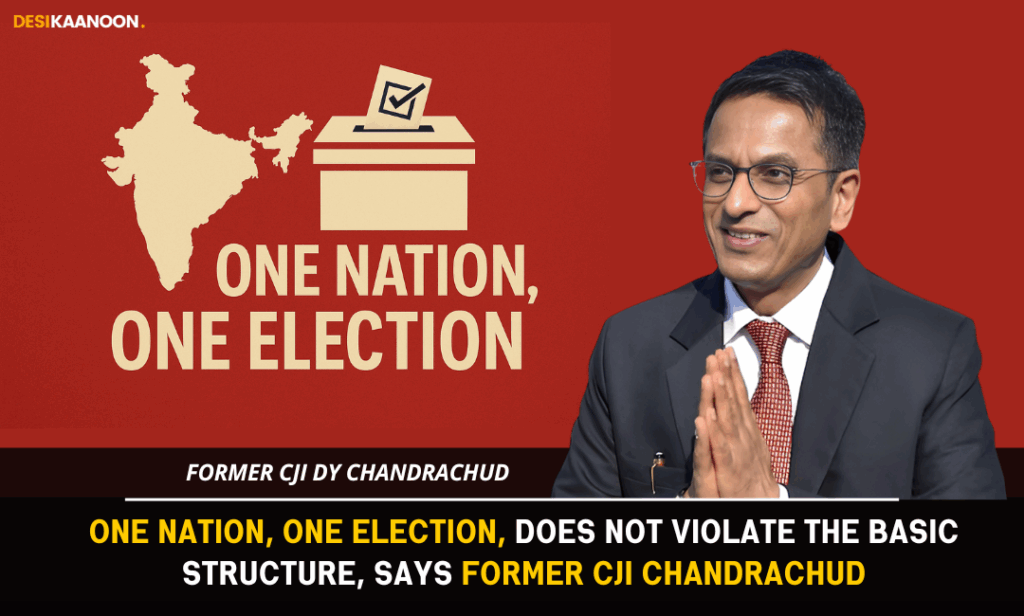Meenakshi Shukla
DY Chandrachud, former Chief Justice of India, recently addressed the Joint Parliamentary Committee (JPC) on the “One Nation One Election Bill”. While maintaining that the Bill does not violate the Constitution, he flagged significant flaws requiring attention. Among the key concerns were the unchecked powers proposed for the Election Commission and the absence of clarity on crucial constitutional scenarios.
The Constitution (129th Amendment) Bill, 2024, seeks to introduce simultaneous elections across the country. While the former CJI clarified that the Bill does not violate the basic structure doctrine, he underlined several concerns, particularly about the excessive powers granted to the Election Commission of India (ECI) and unaddressed constitutional scenarios.
Simultaneous Elections Not Unconstitutional
Chandrachud noted that India had synchronised polls between 1950 and 1960. According to him, neither democracy nor federalism demands separate elections. He clarified that legislatures elected before the Lok Sabha’s first sitting (the “notified date”) will complete their full terms. Assemblies elected after this date would have their tenure aligned with the Lok Sabha once, under a transitional clause. After this adjustment, all legislatures would resume independent five-year terms.
Election Commission Powers Under Scrutiny
The sharpest objections were directed at two provisions that grant sweeping powers to the Election Commission of India. One allows the Commission to amend Part XV of the Constitution, while the other permits it to defer State elections if simultaneous polling is not feasible. Chandrachud warned that such powers lack constitutional backing and could undermine democratic accountability. He emphasised that any power to delay elections must be strictly limited and well-defined.
He proposed a three-step safeguard:
- Election delays must only be allowed for reasons like national security or public disorder.
- Parliament must ratify any such delay.
- Postponement must be time-bound and not open-ended.
Constitutional Gaps Remain
The former CJI also highlighted two key omissions. First, the Bill does not clarify how national emergencies under Article 352 would affect the synchronised cycle. Second, it fails to address scenarios where State governments fall early, such as in a no-confidence situation. These gaps, he warned, could lead to confusion or misuse.
The Joint Parliamentary Committee, led by BJP MP PP Chaudhary, includes 39 members from across parties. It is currently reviewing expert opinions on the legal and administrative feasibility of the Constitution (129th Amendment) Bill, 2024.
Chandrachud concluded that while the idea of simultaneous elections is constitutionally valid, it requires careful reworking to preserve democratic safeguards.
Instagram: Click here
LinkedIn: Click here
For Collaboration and Business: info.desikaanoon@gmail.com

